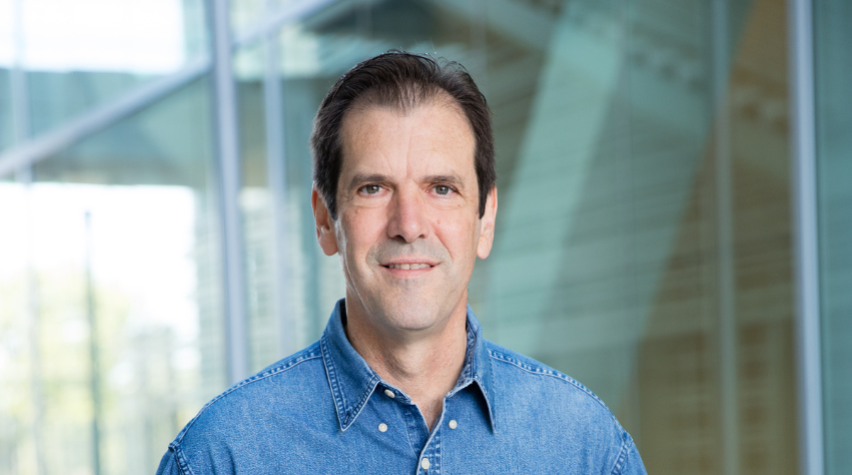
Organized by AIChE’s Society for Biological Engineering (SBE), the 8th International Conference on Accelerating Biopharmaceutical Development will be held September 6-8, 2023 in The Royal Sonesta Boston, Cambridge, MA. The conference will feature interdisciplinary thought leaders and decision makers who will discuss the arena’s latest modalities and advances in bringing medicines to patients, faster. Among many topics, this year’s program details how the pandemic helped to accelerate the development of vaccines and therapeutics. Reserve your spot by July 26 to receive the lowest rates.
We caught up with keynote speaker Raymond Deshaies, Senior Vice President, Global Research at Amgen to discuss trends in biopharmaceutical development, challenges this industry faces, and what he’ll be speaking about.
What are some of the technologies trending that help accelerate biopharmaceutical development?
At Amgen, we are starting to see the impact of an initiative that we call “Biologics NExT” (New and Experimental Technologies) on the development of biologic drugs. Biologics NExT seeks to incorporate machine learning to speed drug development by optimizing lead molecules more quickly and effectively. We are now using machine learning to predict, for example, physical properties like viscosity of a concentrated solution of a monoclonal antibody. By incorporating machine learning into the optimization process, we can reduce the number of ‘design-build-test’ cycles which substantially speeds up the overall process of identifying a clinical candidate.
We are also developing better models to predict more biological properties, like the propensity for a molecule to elicit anti-drug antibodies (ADA). This reduces the chance that a molecule will stumble in the clinic due to a high rate of ADA. Ultimately, as artificial intelligence technology matures, we hope to generate clinical candidates de novo, without the need for immunization. Obviously, being able to circumvent the kinetics of a normal immune response has the potential to speed things up.
What are some of the challenges in the biopharmaceutical industry and patient access and how do you envision the industry moving forward?
This is a very broad question since there are so many challenges! I am fond of telling my colleagues that drug discovery and development is not rocket science – it is much harder! You can calculate with high confidence how to get a rover onto the surface of Mars at a specific location and time, but you can’t calculate how to get a drug to find and bind to a tiny subset of specific protein molecules in a specific subset of cells in a particular organ. Oh, and while doing this, to not engage any other proteins (or in some cases, even the same protein in other cells) lest there be undesirable side effects. This is exceptionally hard to do – in fact I think it may be among the most challenging of all human endeavors.
Emerging evidence suggests that molecules that can engage more than one thing (the ‘thing’ usually being a protein, but potentially also a cell, nucleic acid, metabolite, or other substance/structure in the body) can help address many of the challenges facing drug discovery and development. These types of molecules are often referred to as “multispecifics” due to their ability to engage more than one thing. As examples, a multispecific can help overcome challenges such as biological redundancy by simultaneously targeting two or more redundant pathways. Or it can help with therapeutic index by enriching the active agent at the exact location in the body where it needs to act. Finally, multispecifics can help overwhelm difficult targets by simultaneously grabbing the target plus a naturally-existing effector that can modulate the target. The principle of multispecificity has the potential to make molecules that are more efficacious and better tolerated, leading what I believe is the next wave of drug discovery.
In terms of patient access, at Amgen, we are working to achieve greater diversity and representation in clinical research. We’re doing this by including people who have historically been excluded from clinical research, training and recruiting more diverse investigators, and bringing research to the communities where people live and work, while building trust with these communities.
What specifically will you be talking about at the conference?
I will review pioneering efforts that we are engaged in at Amgen to make multispecific medicines of the future.
What are you looking forward to the most at this year’s conference?
Finishing my talk without flubbing anything! Seriously now…there’s a few people on the program who I know, either from overlapping with them at Amgen or from my prior academic career. I’m very interested to hear what they are up to. I also look forward to hearing more broadly how other leaders across our industry as well as academia are thinking about drug discovery and development in the post-COVID era.
What message would you like the audience to take away from this year’s program?
COVID showed the value that science can add to society. I think it is fair to say that the vaccines saved millions of lives and accelerated a return to ‘normal’ faster than would have otherwise occurred, which no doubt spared us from much greater human suffering and economic impact. Looking forward, not only will there undoubtedly be another viral pandemic, but there will be continuing ‘epidemics’ of conditions that extract a great toll on human health and society, but which we have yet to solve. Cancer, COPD, and obesity, to name a few. If we are to thrive, society needs the fruits of science as much as science needs the support of society. There remains a great deal of work for us to do.
About SBE
Established in 2004, the Society for Biological Engineering is a technological community for engineers and applied scientists integrating biology with engineering. Members of SBE come from a broad spectrum of industries and disciplines and share in SBE’s mission of realizing the benefits of bioprocessing, biomedical, and biomolecular applications. Learn more about SBE.


